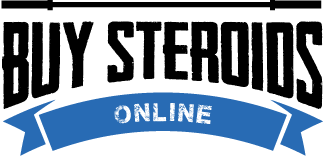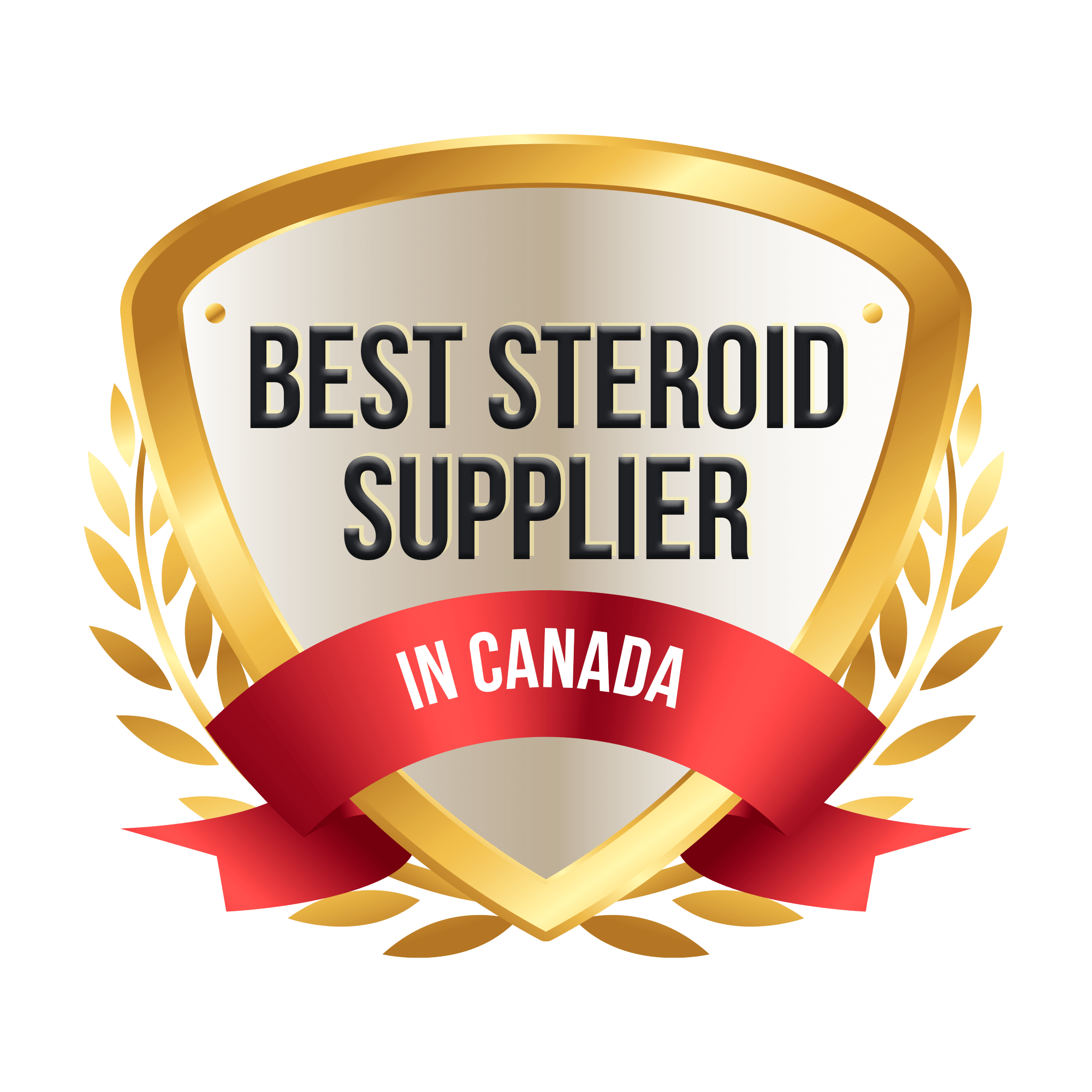FREE SHIPPING ON ORDERS $99+ | SAME DAY SHIPPING ON ORDERS PLACED BEFORE 12PM PST
Is TRT Steroid? Testosterone Replacement Therapy Vs Anabolic Steroids
Testosterone Replacement Therapy (TRT) and Anabolic Androgenic Steroids (AAS) are terms often used interchangeably, but they represent distinct approaches with different purposes. TRT is a medically supervised treatment aimed at restoring testosterone levels to normal, addressing hormonal imbalances.
On the other hand, androgenic anabolic steroids are synthetic substances designed to mimic testosterone, commonly associated with performance enhancement in sports. The risk factor further sets them apart, as anabolic steroids may include harmful additives, potentially damaging the liver and kidneys.
In this blog post, we’ll dissect the nuances between TRT and anabolic steroids, shedding light on their purposes, mechanisms, and the key differentiators that set them apart.
What is Testosterone Replacement Therapy?
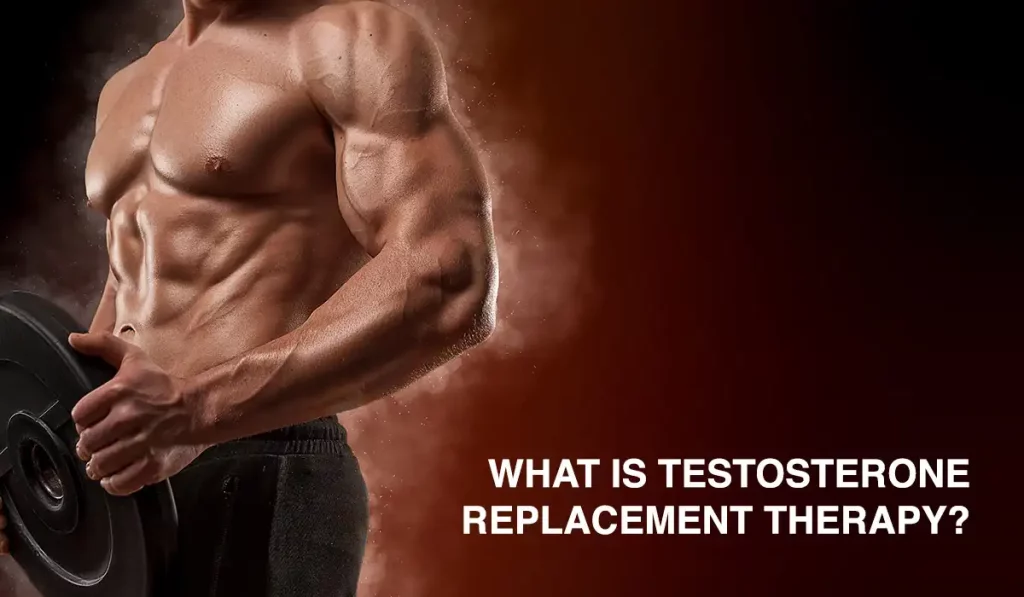
Testosterone Replacement Therapy is a medical intervention aimed at addressing low testosterone levels in individuals. It involves the administration of exogenous testosterone to bring hormone levels within a normal range.
TRT is commonly prescribed for men experiencing symptoms associated with low testosterone, such as fatigue, decreased libido, and mood swings. The therapy aims to alleviate these symptoms and restore hormonal balance, improving overall well-being.
Is TRT the Same as Anabolic Steroids?
No, Testosterone Replacement Therapy and anabolic steroids vary in the quantity of administered testosterone. According to “Diagnosing and managing low serum testosterone by Ana Marcella Rivas” TRT is focused on addressing low testosterone symptoms, using controlled amounts of the hormone.
In contrast, anabolic steroids contain significantly higher doses of testosterone, intended for rapid and substantial muscle growth, often beyond therapeutic levels. The primary distinction lies in the therapeutic purpose of TRT versus the often excessive and non-medical use of anabolic steroids for performance enhancement.
Related: Difference Between Testosterone and Anabolic Steroids
Similarities Between TRT and Steroids
- Primary Function: Both supplement or replace testosterone and mimic its effects.
- Hormone Class: Both belong to the androgenic and anabolic hormone class.
- Effects on Muscles: Both increase muscle mass and strength.
- Administration Methods: Both can be administered through injections, gels, or patches.
- Potential Side Effects: Both have similar potential side effects, although the severity might differ due to dosage.
TRT Vs Steroids: Key Differences
| Aspects | TRT | Steroids |
|---|---|---|
| Primary Function | Supplement or replace testosterone | Mimic and amplify testosterone effects |
| Hormone Class | Androgenic and Anabolic | Androgenic and Anabolic |
| Effects on Muscles | Increase muscle mass and strength | Rapid muscle growth and increased strength |
| Administration Methods | Injections, gels, patches | Injections, oral tablets |
| Dosage | Lower doses, tailored to individual needs | Higher doses, often exceeding physiological levels |
| Potential Side Effects | Acne, liver problems, mood swings, cardiovascular complications | Similar to TRT, but potentially more severe due to higher dosages |
| Legal Status | Prescribed by a healthcare provider | Controlled substance, illegal for non-medical use |
| Medical Supervision | Required | Not required, often used without medical supervision |
Visit our shop page for buying premium bodybuilding steroids: Buy Roids Canada Shop Page
TRT for Bodybuilding
Testosterone Replacement Therapy (TRT) plays a crucial role in addressing hormonal imbalances and promoting muscle growth in bodybuilding. While it can enhance muscle development and strength, achieving a competition-level physique solely through TRT is unrealistic.
Instead, its primary focus is to improve overall well-being, providing benefits like increased energy, sex drive, and quality of life. TRT helps counteract hormone depletion and muscle atrophy, promoting an anabolic state for muscle growth. It serves as a therapeutic approach for individuals with testosterone deficiency, contributing to a more active and healthy lifestyle.
Benefits of TRT
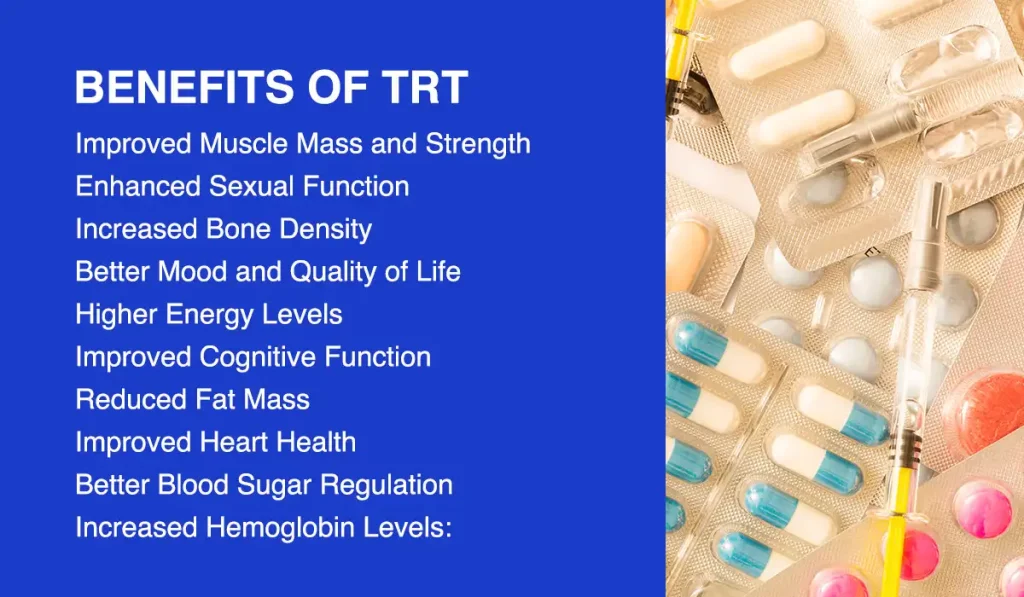
The benefits of Testosterone Replacement Therapy (TRT) are primarily centered around addressing low testosterone levels, which can have several positive effects on health and well-being:
- Improved Muscle Mass and Strength: TRT can contribute to increased muscle mass and strength, which is particularly beneficial for bodybuilding and overall physical fitness.
- Enhanced Sexual Function: It can improve sexual libido and erectile function, addressing issues related to low testosterone.
- Increased Bone Density: Testosterone plays a crucial role in bone health, and TRT can help in increasing or maintaining bone density.
- Better Mood and Quality of Life: Low testosterone levels are often associated with mood swings, depression, and a reduced sense of well-being. TRT can improve these psychological aspects.
- Higher Energy Levels: Many individuals on TRT report increased energy levels and a reduction in fatigue.
- Improved Cognitive Function: Some studies suggest that testosterone has a positive effect on cognitive abilities and memory.
- Reduced Fat Mass: TRT can aid in fat loss, as testosterone plays a role in regulating fat metabolism.
- Improved Heart Health: There’s evidence suggesting that TRT may improve certain aspects of heart health, although this is a complex and somewhat controversial area.
- Better Blood Sugar Regulation: Testosterone can help in the regulation of insulin and glucose levels, which is particularly beneficial for individuals with insulin resistance or type 2 diabetes.
- Increased Hemoglobin Levels: TRT can raise hemoglobin levels, potentially benefiting those with anemia.
It’s important to note that TRT is a medical treatment that should be supervised by healthcare professionals, as it comes with potential risks and side effects. The therapy should be tailored to individual needs, considering the benefits and potential risks.
Who Should Take TRT?
If you exhibit symptoms associated with low testosterone and diagnostic tests confirm abnormally low testosterone levels, TRT may be a suitable option for you. According to “Testosterone for the aging male; current evidence and recommended practice by Roger D Stanworth”
In such cases, healthcare professionals may recommend TRT as a targeted intervention to alleviate symptoms and restore hormonal balance.
Side Effects of Testosterone Replacement Therapy
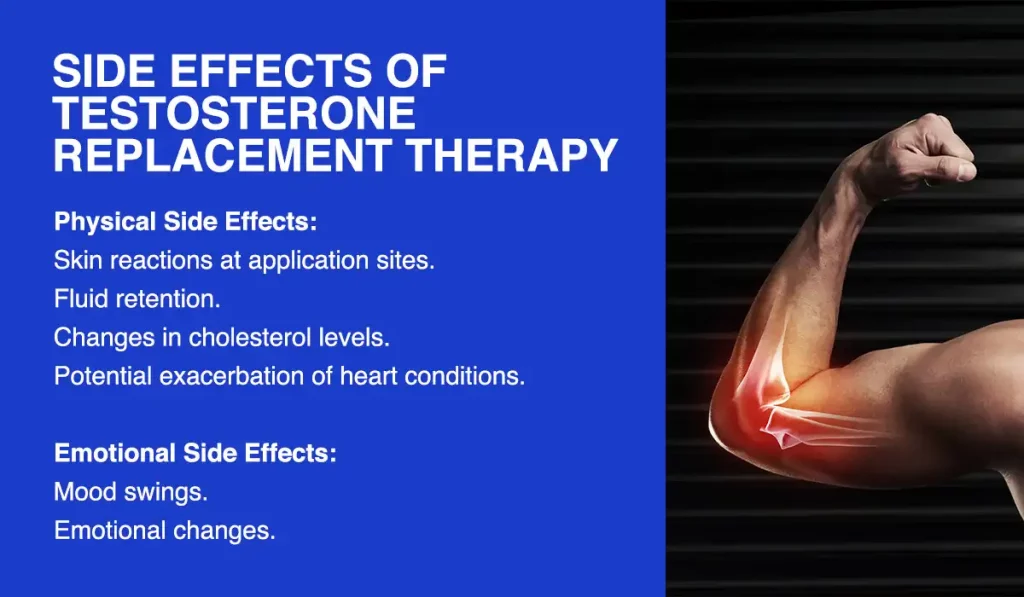
Common side effects of testosterone replacement therapy are listed below:
- Physical Side Effects:
- Skin reactions at application sites.
- Fluid retention.
- Changes in cholesterol levels.
- Potential exacerbation of heart conditions.
- Emotional Side Effects:
- Mood swings.
- Emotional changes.
Related: Side Effects of Testosterone Shots
FAQs
Is TRT a Natural Steroid?
No, Testosterone Replacement Therapy is not a natural steroid. While both TRT and steroids involve the administration of synthetic hormones, TRT specifically focuses on replenishing or boosting testosterone levels in individuals with low crude production.
In contrast, steroids, often used for performance enhancement, involve the use of synthetic versions of testosterone or other hormones. Testosterone Replacement Therapy aims to restore hormonal balance within physiological levels, addressing health concerns associated with low testosterone.
If you are looking for
Does TRT Build Muscle Like Steroids?
Yes, Testosterone Replacement Therapy can contribute to an increase in lean body mass, primarily linked to gains in muscle mass. Unlike the use of steroids for performance enhancement, TRT focuses on restoring testosterone levels within the physiological range. It can improve muscle mass and strength, benefiting individuals with low testosterone levels.
Is TRT Safe?
Yes, when administered under proper medical supervision, Testosterone Replacement Therapy is considered safe. However, safety depends on adherence to prescribed dosage and regular monitoring of hormone levels. Improper use, such as exceeding recommended doses or neglecting medical guidance, can lead to potential risks and side effects.
TRT Vs Testosterone: What Are the Differences?
Testosterone Therapy involves externally administering testosterone to supplement low natural levels. This medical intervention is designed to address hormonal imbalances and related symptoms. On the other hand, natural testosterone is the body’s intrinsic production of this hormone, influenced by factors like age, genetics, and lifestyle.
Final Thoughts
TRT is a medically supervised treatment that aims to restore normal testosterone levels in individuals with deficiencies, promoting overall health. Anabolic steroids, on the other hand, are often misused for performance enhancement and muscle growth, carrying significant risks.
Testosterone Replacement Therapy focuses on balance and well-being, prescribed by healthcare professionals. Anabolic steroids, when abused, can lead to adverse effects, including addiction and severe health complications.
It is crucial to recognize the distinctions between the therapeutic use of TRT under medical guidance and the misuse of anabolic steroids for non-medical purposes. Consultation with a qualified healthcare provider is essential for informed decisions regarding hormonal interventions.
Sources
- E. Charles Osterberg, Aaron M. Bernie, and Ranjith Ramasamy (Jan-Mar, 2014) Risks of testosterone replacement therapy in men
- Nazem Bassil, Saad Alkaade, and John E Morley (Jun 22, 2009) The benefits and risks of testosterone replacement therapy: a review
- Brandon M Roberts, Eric R Helms, Eric T Trexler, and Peter J Fitschen (January 31, 2020) Nutritional Recommendations for Physique Athletes
- Anthony Grech, John Breck, and Joel Heidelbaugh (October 5, 2014) Adverse effects of testosterone replacement therapy: an update on the evidence and controversy
- Rakan Radi, Sarah Gold, Juan P. Acosta, Jason Barron, and Howa Yeung (January 11, 2022) Treating Acne in Transgender Persons Receiving Testosterone: A Practical Guide
- Ahmad Al-Qudimat, Raed M. Al-Zoubi, Aksam A. Yassin, Mustafa Alwani, Omar M. Aboumarzouk (August 9, 2021) Testosterone treatment improves liver function and reduces cardiovascular risk: A long-term prospective study
- Jennifer J. Shoskes, Meghan K. Wilson, and Michael L. Spinner (December 5, 2016) Pharmacology of testosterone replacement therapy preparations
Our dedication to unbiased and meticulously tested bodybuilding supplement recommendations has solidified our position as the most trusted resource in the Canadian bodybuilding community.
Our rigorous editorial process ensures that only the most effective and thoroughly evaluated supplements receive our endorsement.
